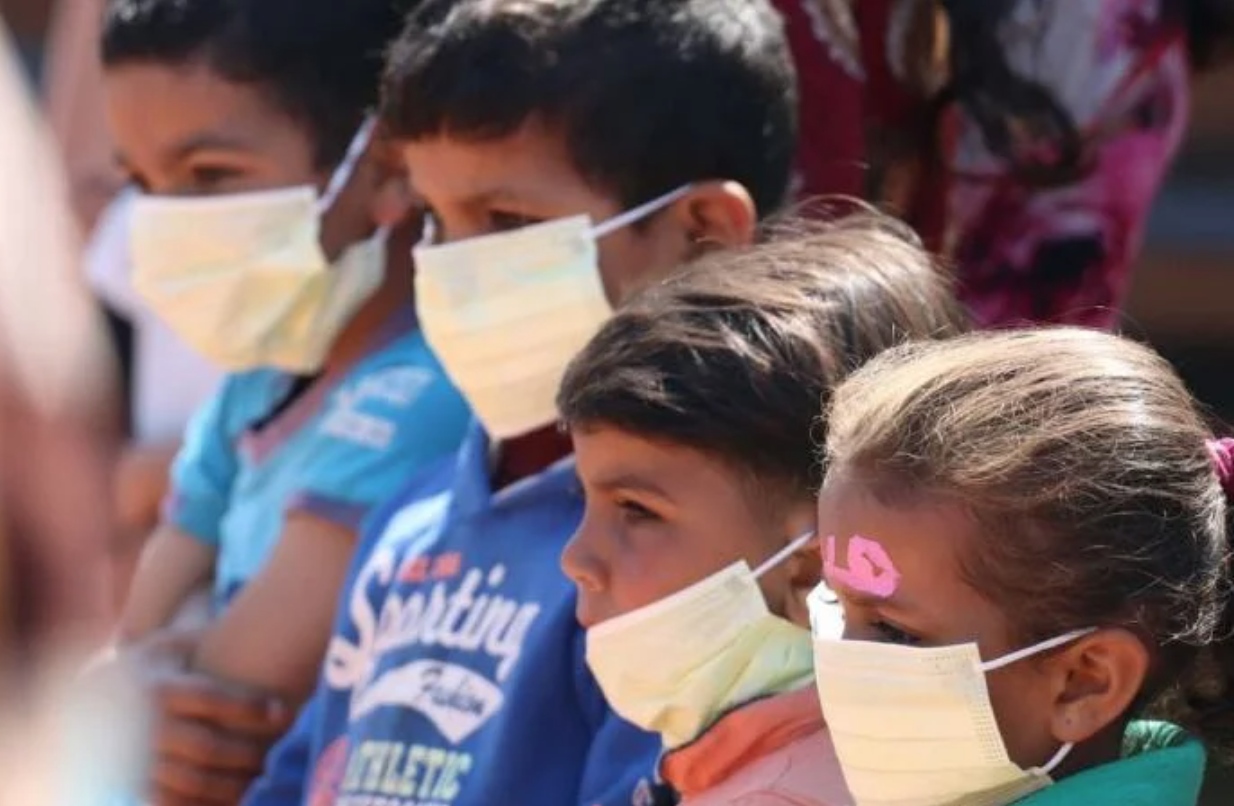We are living a collective tragedy that cannot be silenced: in October, Brazil reached the 600,000 deaths due to Covid-19. At least 1/3 of these deaths were people between 30 and 60 years old. The dead under 30 years of age represent about 1.7% of the total. The majority were men.
There is an unknown and silenced figure in this tragedy: the one that reveals how many (and who) are its orphans. We are talking about a generation that, in a few days, has lost their father, their mother (sometimes both) or their grandparents. A generation that has not been able to say goodbye, watch over and bury their parents. A generation that will live with an individual and collective trauma that, for the moment, we are unable to measure.
One estimate – since we do not have official data – is that there are around 113,000 minors who have lost their father, their mother or both. If we include grandparents as caregivers, the figures is likely to reach the 130,000 children and adolescents. Most of the orphans have lost their father, historically responsible for the economic support of the family. In other words, the impact of this scenario on deepening inequalities and poverty is still to be measured.
Covid’s Parliamentary Commission of Inquiry (CPI), carried out by the Federal Senate, has collaborated so that the death and mourning of this tragedy are no longer invisible. Its work will be fundamental for the construction of the collective memory of our trauma, so that those responsible for this criminal tragedy are punished, so that their acts are not forgotten. It has also fulfilled the important function of giving a voice to those who suffered, and still suffer, the aftermath of the disease; giving a voice to its orphans.
It is the responsibility of society and the State to look after them. It is urgent to develop programs and public policies that guarantee minors’ opportunities to (re)building their lives and realize their dreams. And it is fundamental to guide our orphans in their mourning.
Learning from the past
Let’s look at a recent and very Brazilian example: the victims of the Zika virus epidemic.: children with microcephaly. Women, the “mothers of Zika”, who had to give up their lives to dedicate themselves to the intensive and comprehensive care of their children.
Most of these victims live in the northeastern region of the country, are poor, unemployed mothers and abandoned by their partners. They are mothers and children who have a daily and exhausting routine of treatments that are indispensable for the development and well-being of the children.
Children born victims of the sequelae of the Zika virus, in the worst outbreak experienced by Brazil between 2015 and 2016, were initially entitled to the Continuous Economic Benefit (BPC). Only in 2019 was a law passed that approved the right to a lifelong pension of one minimum monthly salary. However, access to treatment depends on where they live, the public policy networks and programs available in the localities, it depends on the primary caregiver being fully dedicated to the care and transportation of the children.
In practice, many of these women and children depend on the charity of those around them. Not only to ensure the treatment of their children, but also the livelihood of the family. The reality of Zika victims is an example of forgetfulness, invisibilization and negligence that cannot be silenced or repeated.
It is a negligence that transcends the economic sphere, of the guarantee of an “income for survival”. It is a social, emotional negligence of collective responsibility.
Lessons from the pandemic and the rescue of politics
An important lesson of epidemics is that their impacts are always worse among the most vulnerable. The uncontrolled proliferation of the Aedes aegypti mosquito and the rapid spread of Zika, Dengue, Chikungunya and yellow fever viruses are old acquaintances of Brazilian public health. Their proliferation is greater in places with poor access to drinking water and sewage. Therefore, poorer areas, with a more vulnerable population.
Pandemics are not “egalitarian”, and neither is the coronavirus. Again, the poor and blacks were the most affected, children especially. Like Zika victims, Covid-19 deaths in Brazil have income, class and race. It is precisely these people who are most affected by the comorbidities identified as a risk factor. And now their children, thousands, are abandoned to their fate.
In the Federal Chamber and in the Senate, different bills are being processed that aim to guarantee the income of the orphaned minors of Covid-19. Proposals prepared blindly, since we do not even know who and how many they are. How to propose actions, foresee the budget for the distribution of benefits and promotion programs? There is much to do and time is short. Soon it will be two years since the pandemic: will Brazil repeat the negligence?
As the report on Covid by the ICC shows, there is a fundamental difference between Zika and Covid-19 that is worth remembering: the latter has in its history the indelible mark of the actions of a government that deliberately collaborated with the spread of the virus and the worsening of the pandemic, which deepens the trauma and increases collective responsibility.
What is society’s commitment to the future of an entire generation of Covid orphans and victims?
The pain, aftermath and consequences of the disease in the life history of each victim must be understood as collective, never individualized. Each death must be remembered. The orphans will always be the orphans of Covid. A pandemic is a collective trauma, which must be addressed collectively. From the beginning, we spoke with enthusiasm and hastily pointed to the “new normal”. How can we return to normality in the face of such trauma?
In addition to the urgent implementation of public policies, it is necessary for the Brazilian society to do the work of mourning. It is necessary to tell and recount our individual experiences with Covid-19, and collectively elaborate its political and social meanings, and the marks of the pandemic in our history: to build the memory of the trauma. Only in this way is it possible to rework and recreate: it is not possible to return to the old normality, and a new one in the future will only be possible if we commit ourselves to it.
This commitment involves rescuing politics, understanding that public policies, discourses and political decisions matter. The construction of memory or oblivion is a political and collective decision, which will be tattooed on the social body.
Let Brazil not forget. Our victims and orphans will need more than access to financial aid to rebuild their lives. Right now, many Brazilian children are grieving, even more vulnerable, living in uncertainty about their future because of the pandemic. Who will take care of them? How will they mourn? How many will have to go through adoption processes? How many will not even have the possibility of being adopted? What will become of our future as a society if their (our) pain is silenced?













